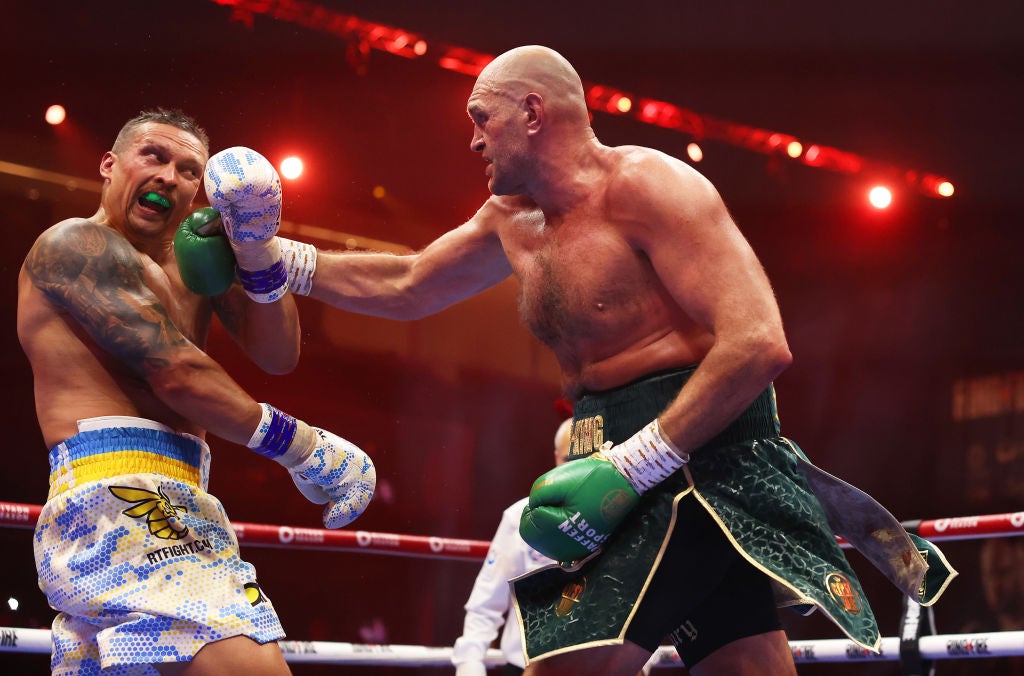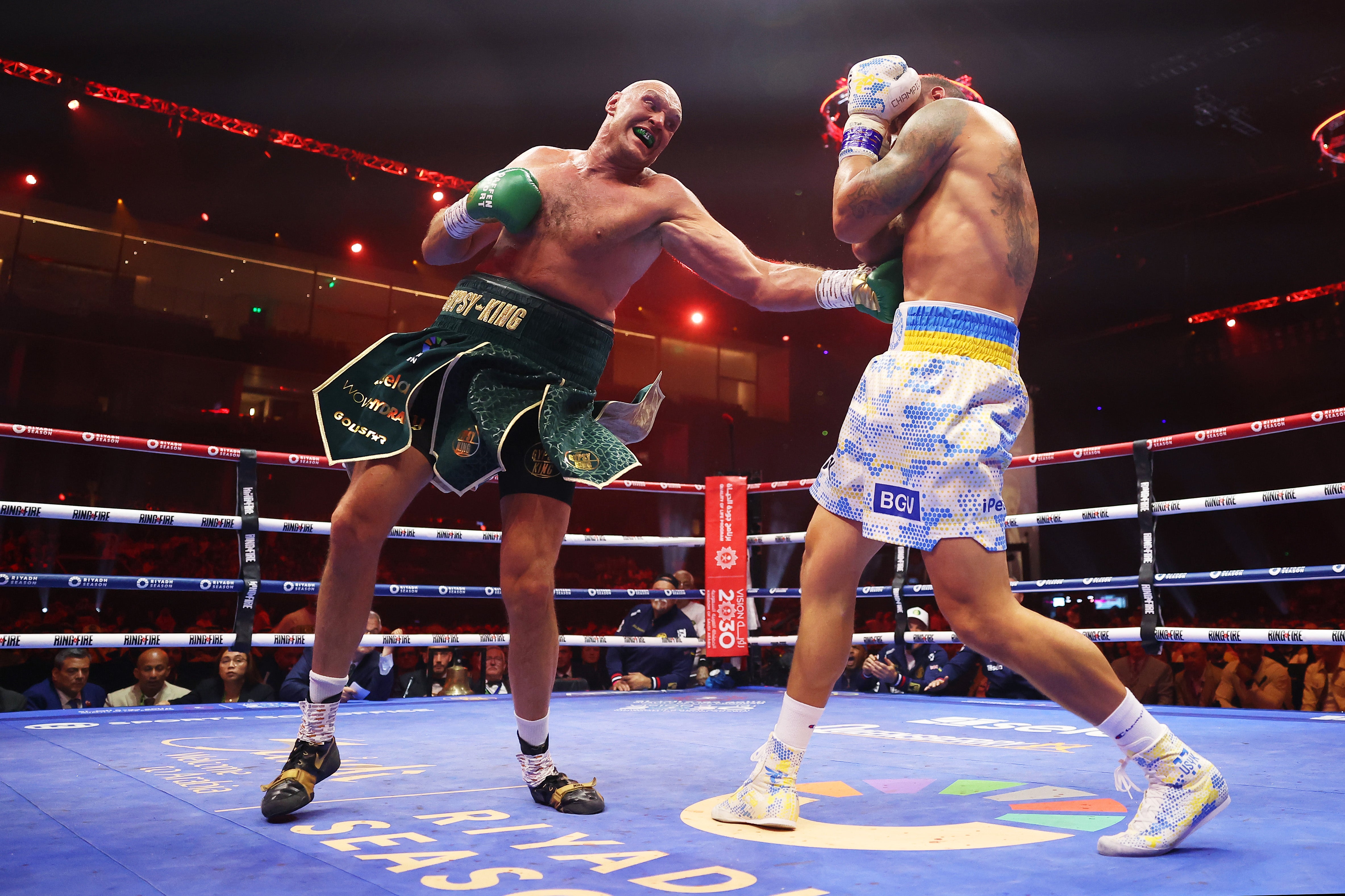Smart fighters win rematches, which could be a problem for Tyson Fury in late December when he fights Oleksandr Usyk again, following last May’s defeat in Riyadh.
The great American boxing trainer and guru Manny Steward put forward the idea that in any rematch, the smart boxer, having lost the first fight, will win the second fight. It was one of Steward’s cherished little gems, one dependent on one of the boxers being smarter than the other – that is the problem for Fury: Usyk is his equal in the boxing brains department.
Steward talked about his theory one night in Las Vegas, a few days before Lennox Lewis met Hasim Rahman in their hot rematch; seven months earlier in 2001, Rahman had shocked the boxing world by dropping and stopping Lewis in South Africa. The defeat was stupid, the revenge was clever.
Lewis, who passed on his undisputed champion mantle to Usyk in May, had already changed the result in two rematches before he climbed through the ropes and knocked out Rahman in four rounds at the Mandalay Bay. In 1997, Lewis beat Oliver McCall and two years later in 1999, Lewis outpointed Evander Holyfield. In the Holyfield rematch, Lewis was smarter; in the McCall rematch, Lewis was simply coherent.
Fury has a significant win in a rematch on his record, but it had little to do with being smart, boxing sensibly and being slick; in 2020, two years after their hard draw, Fury walked through Deontay Wilder in seven brutal rounds. It was one of the most outrageous changes in tactics in any rematch ever. Some might claim it was a smart move, a brilliant switch of tactics, but it was so risky. It showed Fury’s ability to stick to a plan and that is something that Usyk must be mindful of when the first bell sounds.
In the second Wilder fight, Fury was a different person, and Wilder had no idea how to deal with the man in front of him. Wilder was saved from his own bravery. Their third fight was just a ridiculous war, and both came close to losing before it finished in the 11th when Fury dropped Wilder for the third time. It was about guts and heart, not boxing brain, in that incredible third fight.
Usyk also has an important rematch win, but it is possible to argue that his second win over Anthony Joshua was not as clear as his initial victory. In their first fight, outdoors at Tottenham Hotspur in September 2021, Usyk boxed with sense and caution and won a unanimous decision. The scores were by five, four and two rounds in his favour. On the night, Joshua experimented with a variety of styles and fell short. The fight remains an oddity.

The rematch was just under a year later, in Jeddah. This time, Joshua made some changes and it was closer; Usyk won a split decision but it was not as clear. In all fairness, Usyk just repeated the formula from the first fight and that same approach could be enough when the first bell sounds on 21 December for the rematch – all the pressure is on Fury to change the outcome. The pair will meet in London on Wednesday to officially launch their second showdown.
There is a solid case that SugarHill Steward and Andy Lee, the cornerman duo from the second Wilder fight, will get Fury to be more aggressive and go for Usyk from the very first bell. In the months before the Wilder rematch, Lee and Steward had said that their boxer would walk through Wilder with two-fisted aggression; nobody really believed them. The same could happen – perhaps, the same should happen – in Riyadh.

One of the differences between Wilder and Usyk is that Usyk can adapt; on the night in Las Vegas when Fury charged out and just let his hands go, Wilder was trapped in a web of his own technical shortcomings. Usyk can survive a charge like that, move, hold and use his ringcraft. It’s not simple beating Usyk but Fury is both big enough and smart enough to apply the right type of pressure. However, Fury is nearly five years older and that matters. It is not an easy fight to predict.







